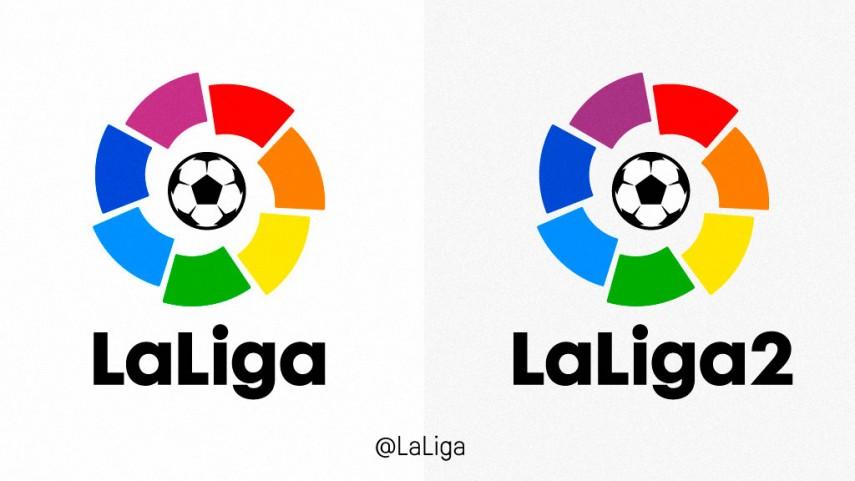As the sun sets on another thrilling season in Spanish football,La Liga stands not onyl as a battleground for talent but also as a proving ground for innovative tactics adn managerial prowess. With a legacy steeped in tradition yet rich in evolution, the league has become home to some of the most visionary coaches in the football world. From shaping young players to redefining team dynamics, these elite managers are not just steering their clubs toward victory; they are setting the tone for the future of the game itself. This article delves into the strategies and philosophies of La Liga’s finest tacticians, examining how their influence extends beyond the pitch and could shape the very fabric of football in the years to come. As the demand for dynamic and adaptable football intensifies, the role of these managers becomes ever more critical in the league’s storied narrative.
Table of contents
- The Tactical Innovations of La Ligas Top Coaches
- Building Young Talent: The Focus of Elite Management
- Navigating Pressures: Leadership Strategies in a Competitive League
- The Role of Technology: Enhancing Team Performance and Fan Engagement
- Concluding Remarks
The Tactical Innovations of La Ligas Top Coaches
La liga’s top managers are not just tacticians but visionaries who redefine the parameters of football through their innovative strategies. Coaches like xavi Hernandez and Carlo Ancelotti have infused fresh ideas that challenge conventional gameplay. Xavi, for instance, has emphasized ball retention and fast transitions, fostering a possession-based style that has become a hallmark of FC Barcelona’s revival. Conversely, Ancelotti has expertly balanced the old with the new at Real Madrid, deploying tailored approaches that blend youth and experience effectively.This divergence in tactical philosophies has led to a rich tapestry of competitive football, showcasing how varied strategies can yield success on La Liga’s grand stage.
The tactical nuance exhibited by these elite managers is evident in their use of formation experiments and player roles that strategically disrupt opponents.Such as, the incorporation of inverted full-backs and versatile wingers has become a common thread among top teams. These innovations are complemented by systems designed for pressing and high defensive lines, allowing teams to maintain aggressive stances while controlling the tempo. The table below highlights some notable tactical innovations and their corresponding teams:
| Manager | Key Tactical Innovation | Team Impact |
|---|---|---|
| Xavi Hernandez | Possession-based football | Revitalized midfield control |
| Carlo Ancelotti | Flexible formations | Balance between youth & experience |
| Diego Simeone | Defensive solidity | Resilience in high-stakes matches |
Building Young Talent: The Focus of Elite Management
In the fiercely competitive landscape of La Liga,elite managers are increasingly directing their focus towards nurturing young talent,recognizing that the future of the sport hinges on the next generation of players. Their strategies are not merely about winning now; they are cultivating a system that prepares young athletes for the demands of professional football. These managers emphasize the importance of:
- Scouting networks: Developing extensive networks to identify promising talent at a young age.
- Training Programs: Implementing specialized training regimens that cater to the unique needs of developing players.
- Mentorship: Establishing mentorship initiatives where seasoned players guide young prospects both on and off the field.
This focus is evident in the selection of clubs prioritizing youth integration into their first teams. Many La Liga clubs have adopted a model that places important emphasis on their youth academies, viewing them as vital components of their long-term success. A stark contrast can be drawn when examining clubs that thrive on youth investment versus those that rely solely on established stars. Below is a simplified overview of the current youth integration strategies:
| Club | Youth Academy Focus | Notable Young Players |
|---|---|---|
| FC Barcelona | Strong emphasis, developed La Masia | Pedri, Gavi |
| Real Madrid | Investment in youth scouting | Vinícius Júnior, Rodrygo |
| Atletico Madrid | Emerging focus on academies | Marcos Llorente, Joao Felix |
Navigating Pressures: Leadership Strategies in a Competitive League
In the high-stakes environment of La Liga, elite managers are not just strategists; they are the architects of ambition and resilience. The pressure to deliver results can be overwhelming, but prosperous leaders harness this intensity to inspire their teams and cultivate a winning culture.They employ a variety of strategies, including:
- Clear Communication: Effective managers prioritize transparency, ensuring that players understand their roles and the collective vision.
- Adaptability: The best leaders tailor their tactics to the unique strengths of their players,responding quickly to in-game challenges.
- Emotional Intelligence: Recognizing and addressing players’ psychological needs fosters trust and loyalty, essential for team cohesion.
Moreover, the competition in La Liga necessitates a forward-thinking approach, where anticipating challenges and leveraging data analytics become integral. Managers are increasingly embracing technology to gain insights into performance metrics, thereby influencing training regimens and match preparations. A recent analysis of managerial approaches reveals a growing trend:
| Manager | Strategy Focus | Recent Achievement |
|---|---|---|
| Xavi Hernández | Possession Play | Revived Barcelona’s midfield dominance |
| Diego Simeone | defensive Resilience | Secured consistent top-four finishes |
| Carlo Ancelotti | Player Development | Won UEFA Champions League |
The Role of Technology: Enhancing Team Performance and Fan Engagement
in today’s fast-paced world of sports, technology has emerged as a critical ally for teams looking to enhance their performance and deepen their connection with fans. From the sophisticated analytics software that allows managers to dissect opponents’ strategies to wearables that monitor player health in real-time,technology is at the forefront of professional football,especially in La Liga. Innovative tools now available include:
- Data Analytics: Used for player performance metrics and game strategy assessments.
- Virtual Reality Training: Facilitates immersive training experiences for players.
- Fan engagement Apps: Provide immersive experiences ranging from virtual stadium tours to behind-the-scenes access.
Furthermore, the integration of technology into match-day experiences has transformed the way fans engage with the sport. Smart stadiums equipped with high-speed Wi-Fi and mobile charging stations ensure that fans remain connected throughout the match. This is complemented by interactive platforms where supporters can participate in real-time polls during games or access exclusive content. In a landscape where every second counts,managers are not only leveraging technological advancements to refine their tactics but are also enhancing the overall spectator experience,ensuring that La Liga remains at the cutting edge of football’s evolution. Upcoming trends emphasize:
- Augmented Reality: Enhancing three-dimensional views of player stats and game highlights.
- Blockchain Technology: Secure ticketing processes and fan token systems.
- AI Chatbots: providing instant customer service to fans for inquiries.
Concluding Remarks
As La Liga continues to captivate football fans around the globe, the influence of its elite managers cannot be overstated. These tacticians are not just shaping the immediate future of their respective clubs, but are also leaving a lasting imprint on the broader landscape of the sport. through innovative strategies, a focus on youth development, and an unwavering commitment to excellence, they are redefining what it means to succeed in one of the world’s most competitive leagues.With the likes of Xavi Hernandez, Carlo Ancelotti, and Diego Simeone at the helm, the upcoming seasons promise to be a thrilling blend of tradition and innovation. Each manager brings a unique philosophy and vision,driving their teams to push the boundaries of performance on and off the pitch. As they navigate the challenges of modern football,including the integration of technology and the ever-present pressure to deliver results,their contributions will not only define La Liga but also inspire the next generation of coaches worldwide.
In this evolving narrative, the role of managers as visionaries becomes more critical than ever. As they adapt to the challenges and opportunities presented by the changing game, their leadership will undoubtedly influence the trajectory of football for years to come. The stage is set for these elite figures to continue their quest for greatness, and fans can only watch in anticipation of the remarkable stories that lie ahead in La Liga’s storied history.





